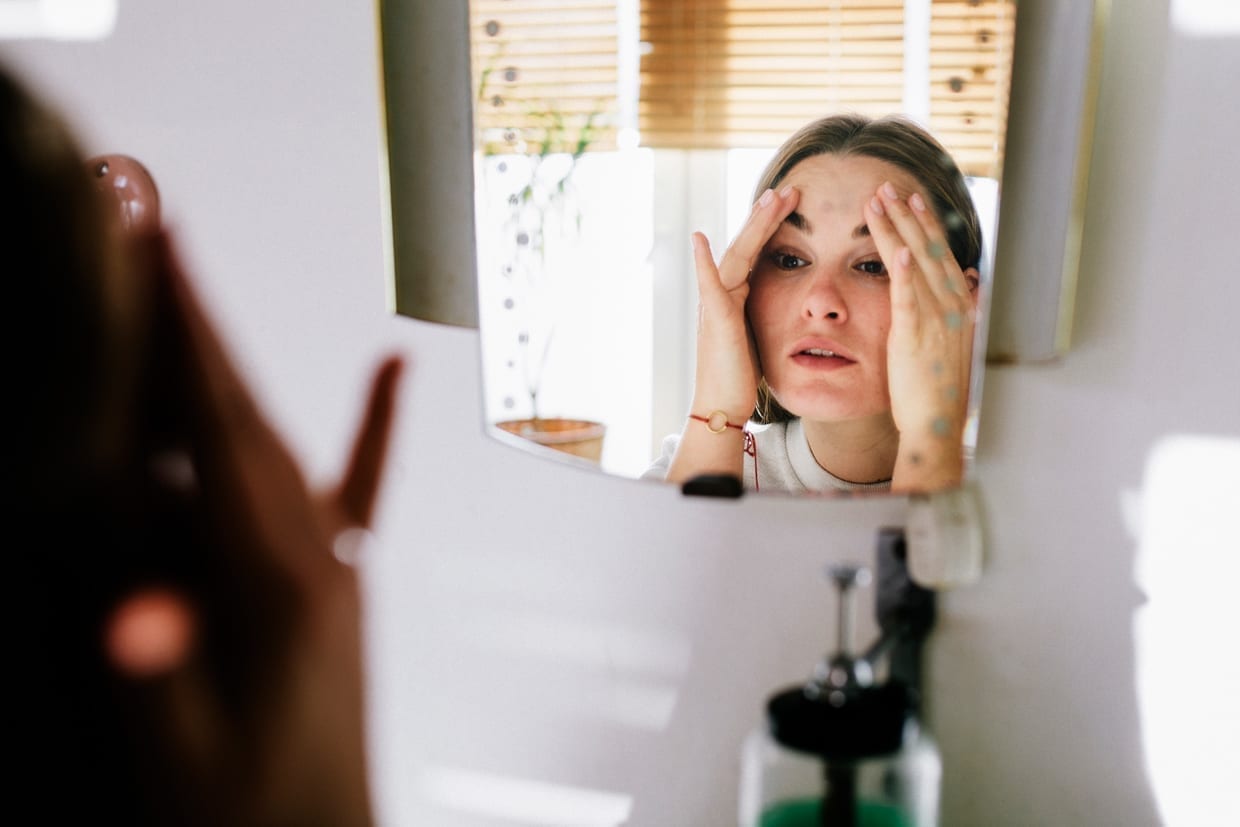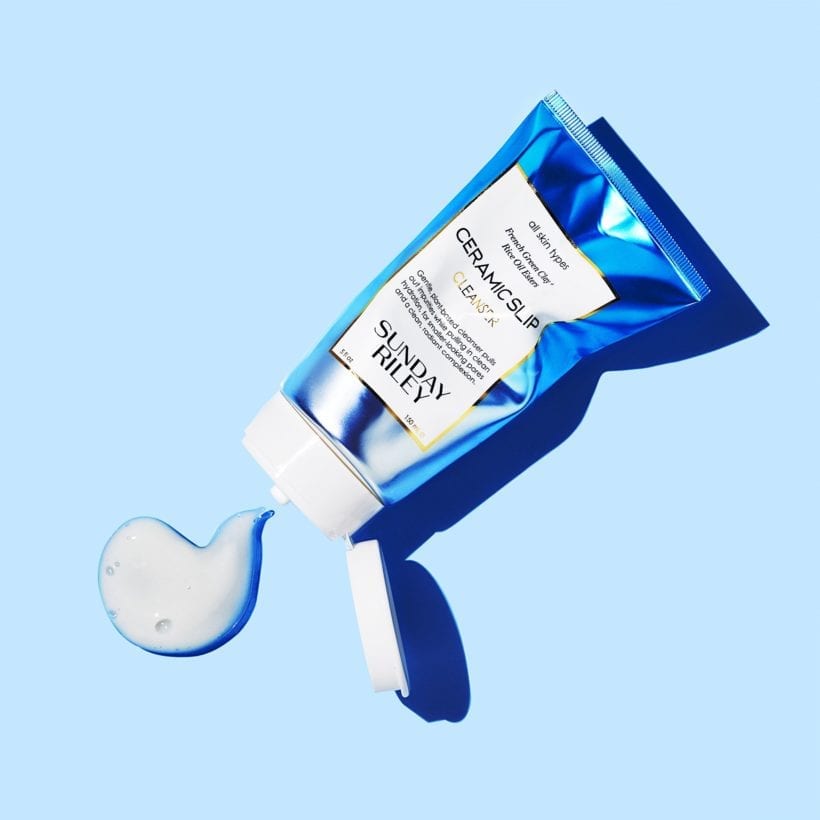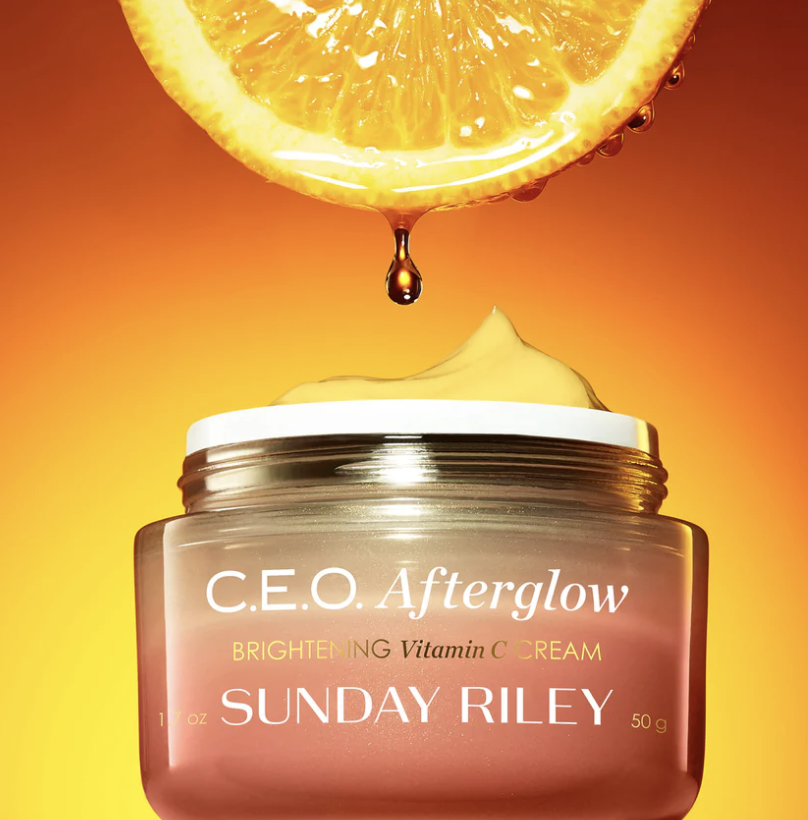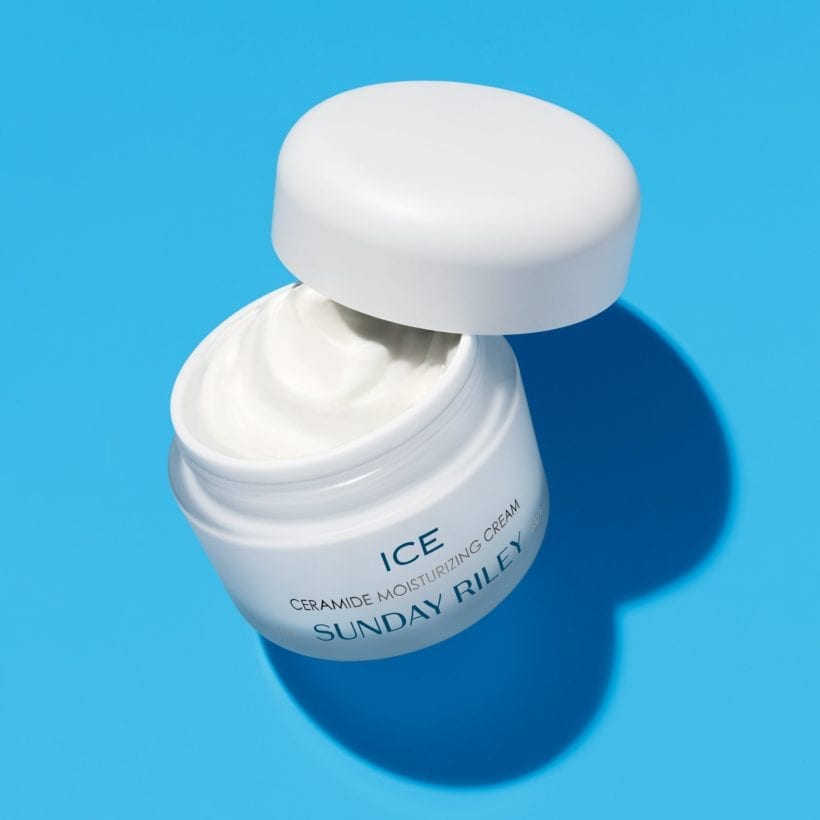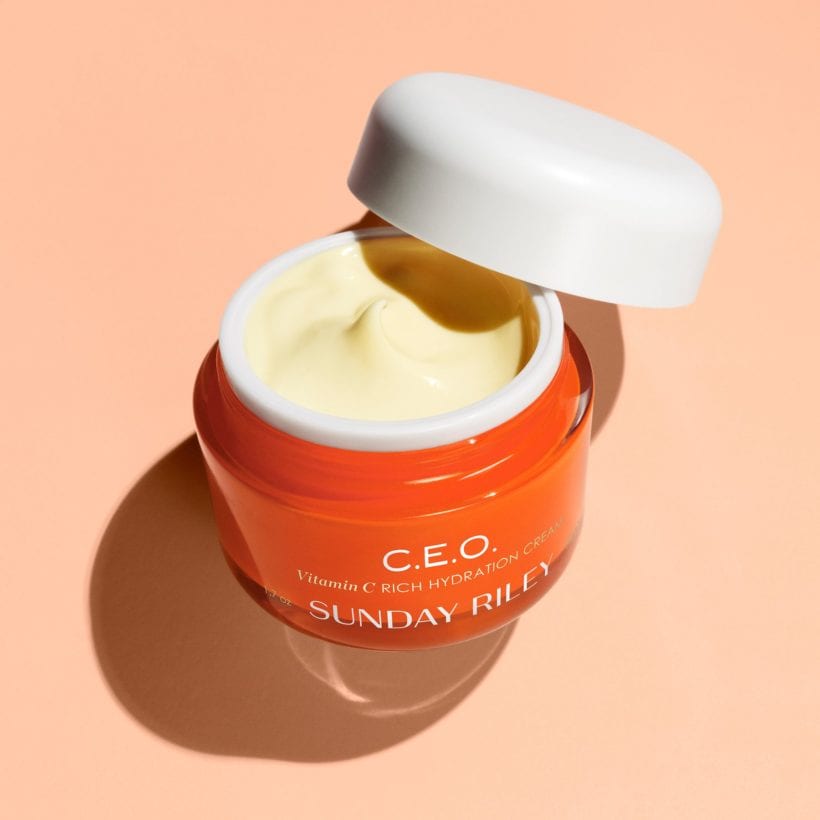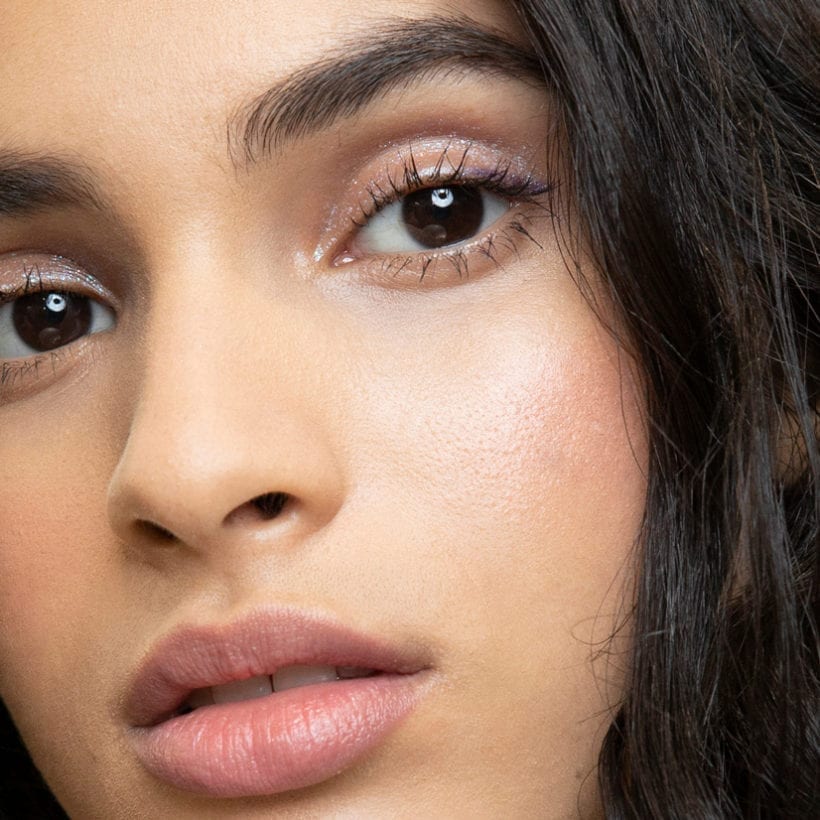Does it feel like no matter what you do and no matter how many products you slather on your skin, you are still facing outs of bad breakouts? You are in good company. Whiteheads and blackheads, hyperpigmentation, cysts and premature aging — many of these skin blemishes and changes can actually be prevented rather easily — with just a few changes to our lifestyle. “Many of our daily habits can influence our skin: from how we wash it, to how we protect it, to what substances we take in, and even to our level of stress,” explains Maria Aleshin, M.D., a dermatologist at Stanford Health Care.
Good skin, like good hair, is most easily achieved when the majority of our daily habits err on the healthy side. Wondering what you might be doing each day that could be indirectly sabotaging your skin? We turned to dermatologists to uncover the most obvious (and not-so-obvious) signs that someone might be in a toxic relationship with their skin.
You pick at your face
It is almost impossible not to poke and prod at each and every pore when you look in your mirror, but it is one of the worst things you can do if clear skin is something you desire. Not only can popping, squeezing or manipulating pimples lead to a difficult-to-treat scar, but it can also spread acne-causing bacteria to other areas of your face. Instead of picking, schedule an appointment with your dermatologist who can recommend at-home spot treatments or potentially prescribe a medication that can do the trick.
You don’t wash your face twice daily
It is just as important to wash your face first thing in the morning as it is just before you go to bed (although, if you had to choose one, let it be before bed). “Just as we wake up every day and should brush our teeth to keep them healthy and clean, we should be doing the same with our skin,” says Jaimie Glick, M.D., a dermatologist at Marmur Medical and Clinical Assistant Professor at Weill Cornell Medicine. “Studies have shown that washing your face can remove particulate matter and lead to improvements in skin conditions like acne and even prevent premature aging.”
You are using the wrong products for your skin type
Skin care is not one size fits all. It is important to know your skin type to determine what kind of ingredients will help keep it healthy and vibrant. Additionally, there are countless many products on the market today that make it difficult to know where to turn. “The key is to focus on the core ingredients in these products that have the most rigorous scientific evidence and to speak with your dermatologist about what may be best for you,” says Glick. “If you have rosacea, for example, using a glycolic acid may flare your skin, whereas patients with pigmentation concerns would likely benefit from a product containing glycolic acid.”
You forget to use sunscreen
You know that you should be wearing sunscreen when you are at the beach in the summertime but might not realize that you should be wearing it 24/7 — no matter where you are (even on a cloudy day!). “Sun exposure is the primary cause of premature aging as ultraviolet light exposure can lead to collagen breakdown, wrinkle formation and hyperpigmentation, which is why sunscreen needs to be used all year round,” says Glick. Aim to apply a broad-spectrum, water-resistant sunscreen that is SPF 30 or higher as part of your skin care regimen each day.
You exfoliate too often
Exfoliating, or sloughing off the dead cells in the top layer of your skin, is a great way to unclog pores, prevent breakouts and increase cell turnover. However, it is important to minimize exfoliating to once or twice a week at most. Skin that is overly exfoliated appears inflamed, red, flaky and is easily irritated. What’s more: As a response to aggressive exfoliation, skin often becomes more shiny and oily, due to the skin’s natural response to produce more oils after being overly stripped of them, explains Jacqueline Berliner, M.D., a dermatologist at Marmur Medical. In addition to only exfoliating once or twice a week, Berliner recommends carefully reviewing all of your skin care products to ensure exfoliating ingredients aren’t being snuck in as well as moisturizing post-exfoliating. “The type of moisturizer will vary based on skin type and season, those with oily skin may prefer lighter lotions and those with dry skin will prefer thicker creams, especially during the winter months,” she adds. You may want to look for a ceramide-rich cream, which are lipids that are created naturally by the skin and can restore the skin’s natural moisture barrier.
You use the same moisturizer for your face and body
It might make your life easier to moisturize both your face and body with the same cream or lotion, but doing so can easily lead to clogged pores and greasy skin. This is because most body lotions are often comedogenic, meaning they are not formulated for acne-prone skin. When selecting a moisturizer for your face, be sure to look for ones that say “non-comedogenic” on the label.
You don’t clean your cell phone and pillowcases often
Think about how often your face comes in contact with both your cell phone and pillowcase. Now think about the potential germs those two items might be exposed to on a day-to-day basis. “Simply leaning the face against the phone can cause occlusion and friction, leading to blackheads and stubborn pimples,” says Rina Allawh, M.D., a dermatologist at Montgomery Dermatology in King of Prussia, Pennsylvania. “Wash your phone at least once a day with a makeup or sanitizing wipe and wash your pillowcases and headscarves at least weekly to prevent unwanted acne breakouts along the sides of the face and forehead.”
You accidentally get hair products on your face
Applying leave-in conditioner and anti-frizz spray might leave your hair feeling silky smooth, but it can also lead to breakouts if you are not careful when it comes to where and how you are applying it.
Allawh recommends protecting your forehead with a washcloth or a thin cleansing wipe to help prevent such greases to adhere to the skin on the face. “Oils and greases used on the scalp have been shown to be comedogenic and often the cause of unwanted, persistent acne breakouts,” she adds.
Your diet is lacking in nutrients
As the saying goes, “you are what you eat” — and this is true when it comes to the connection between your diet and your skin. Greasy, fatty foods, as well as dairy, are more likely to lead to a breakout while antioxidant-rich foods help protect it against sun damage and slow down and even reverse the signs of aging. Aim for a diet rich in lean proteins, fruits and vegetables for optimal skin health.
You are using too many products at once
Quality is more important than quantity when it comes to skin care products. “Many people walk out of beauty stores with tons of new products touting the latest and greatest trending ingredient; however, layering too many products can cause the skin to become irritated and red,” says Marnie B. Nussbaum, M.D., a New York-based dermatologist. “Many products should not be used together as they can cancel each other out (like vitamin C and retinoids) or can be too irritating together (like retinoids and alpha-hydroxy acids).” Also, she points out that using too many products at once can trap pores and prevent your skin from being able to breathe.
You only moisturize when you are dry
If you are the type to only reach for the moisturizer in the dead of winter for fear that it could cause greasiness, think again. Moisturizing on a regular basis is one of the healthiest things you can do for your skin. “The skin’s most outer layer is made up of a lipid bilayer that helps keep the skin hydrated and looking less dull,” explains Nussbaum. “When the skin’s barrier is compromised, water loss across the epidermis is increased, leading to dry, dull skin with fine lines.” Even if you have oily skin, she suggests applying a light lotion or serum to help keep the skin plumped and hydrated.
You smoke (even occasionally)
Smoking is one of the most self-sabotaging habits — for your health and the health of your skin. “Smoking cigarettes can speed up our normal aging process and lead to increased wrinkling and sagging of our skin,” says Aleshin. “It can slow down our body’s ability to heal wounds and can also cause certain skin conditions to be more severe, such as psoriasis and hidradenitis [a skin condition that causes small, painful lumps to form under the skin]”. She recommends talking to your doctor about quitting smoking so you can get the necessary support to quit for good.
You take hot showers
Steamy showers might feel relaxing on your skin and scalp, but the heat dries out and damages your skin, leading to itching and irritation. Instead, Aleshin recommends showering with lukewarm water and gentle, fragrance-free soap. “After showering, you should gently pat the skin dry with a towel and apply a bland moisturizing cream to help lock in the moisture,” she adds.
We only recommend products we have independently researched, tested, and loved. If you purchase a product found through our links, Sunday Edit may earn an affiliate commission.
